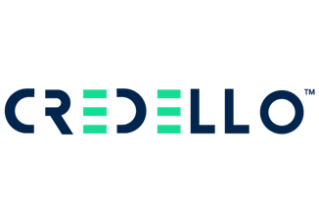Cash-Out Refinance Or Home Equity Loan

- Meredith Lepore, Editor and Journalist at Credello
- 23.09.2022 03:45 pm #equity #loan
Installment loans are a type of loan that allows you to borrow against the value of your home. The two most common types of installment loans are cash-out refinance and home equity loans. So, which one is better? The answer depends on your financial situation and goals. Cash-out refinance loans offer lower interest rates and monthly payments than home equity loans, but they require you to have good credit and a steady income. Home equity loans may have higher interest rates and monthly payments, but they may be a good option if you have bad credit or limited income. Ultimately, the best option for you will depend on your individual financial situation.
We’ll talk about both of those options in the following article. We’ll explain the difference between them and which one is usually a better move.
Cash-Out Refinance
Cash-out refinancing refers to a loan you take out on a property you already own. Essentially, you’re replacing your current mortgage with a new one. Cash-out refinancing is not possible if you don’t already have an existing mortgage.
If you decide to do cash-out refinancing, you’re replacing the mortgage you have right now with a larger one. You will then get paid in cash the difference between the old mortgage and the new one.
Home Equity Loan
With a home equity loan, you’re borrowing money by using your home’s equity as collateral. A lending entity will generally determine how much it can offer you by looking at the property’s value.
The lending institution, often a bank or credit union, will send an appraiser to your home. This appraiser will be an expert in the real estate market in which you reside. They will determine the home’s value, and then the lending entity will offer you a loan based on the amount the appraiser calculated the home to be worth.
Why Get a Home Equity Loan or Cash-Out Refinancing?
There are various reasons for pursuing a home equity loan or cash-out refinancing. For instance, you could use the money from either of those options to pay for unexpected medical bills or to start your own business.
The bottom line with either a home equity loan or cash-out refinancing is that you are borrowing the money you need for any reason against your home.
Which One is Better?
If you’re considering both options, it’s important to understand that cash-out refinancing is considered a first loan while a home equity loan is a second loan.
In other words, if you do cash-out refinancing, you’re replacing your existing mortgage with a new one instead of taking on a second loan on top of it. With a home equity loan, you’re applying for a second loan on top of your existing mortgage. Thus, you’re adding a second financial obligation.
Almost every time, cash-out refinancing is the better move. This is because you’re much more likely to get a better interest rate with cash-out refinancing.
Understand the Difference
You should understand the difference between a home equity loan and cash-out refinancing if you need money urgently and you’re considering one of these options. Remember, with a home equity loan, you’re taking on a second loan that you must make payments on in addition to the ones you’re already making on your existing mortgage.
By contrast, with cash-out refinancing, you’re replacing your existing mortgage with another one. It will have its own monthly payment amount, interest rate, and term length.
It’s almost always a better move to do cash-out refinancing instead of a home equity loan because you’re liable to get a better interest rate from the lending entity. You always want a lower interest rate because you’ll pay the lender less money over time.



















